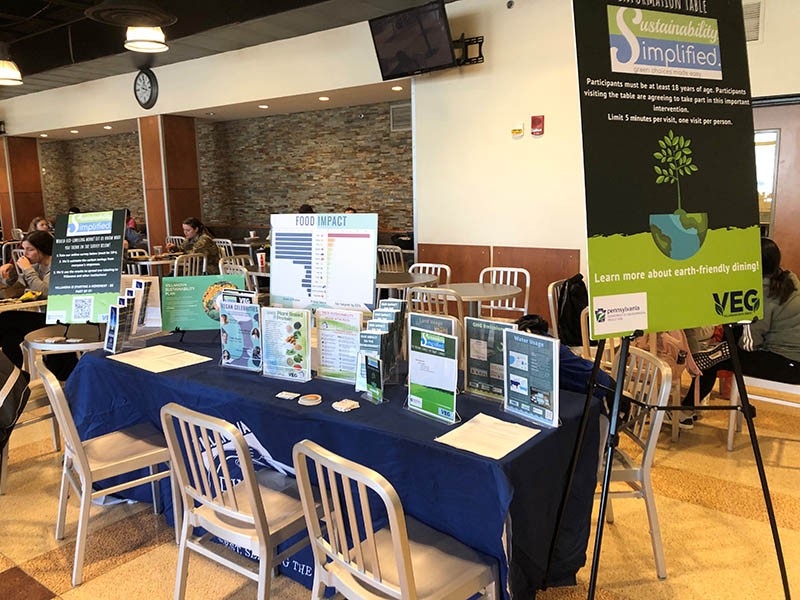Mechanical Engineering Project Puts Focus on Sustainable Eating

According to the U.N.’s Food and Agriculture Organization, meat and dairy products account for an estimated 14.5% of global greenhouse gas emissions, and a big step toward halting the climate crisis is to decrease the consumption of meat, eggs and dairy products.
As a researcher with experience in the analysis and improvement of system energy efficiency and environmental sustainability, Aaron Wemhoff, PhD, associate professor of Mechanical Engineering, finds these facts especially compelling. With funding from the Pennsylvania Department of Environmental Protection’s Environmental Education Grant Program, Dr. Wemhoff and a team of staff members and students are educating the Villanova community about Earth-friendly food choices.
“Concerns about climate change are growing,” says Dr. Wemhoff, “and we can look at simple methods to reduce our carbon footprint.”
Dr. Wemhoff’s team partnered with Villanova Dining Services to provide environmental impact information about food choices. The emissions created by beef (27 kg CO2) or cheese (14 kg CO2), for instance, is far higher than that of plant-based foods like tomatoes or tofu (each less than 5 kg CO2).
The goal of the project was to lessen the embedded carbon emissions from meals consumed at a Villanova, with a focus on reducing greenhouse gases.
During an event in March, students staffed informational tables at dining halls on campus, presenting flyers on how diet choices can affect the environment. Visitors were prompted to complete a survey on whether their views had changed and whether the knowledge would affect their further behavior. Dr. Wemhoff used the survey data to suggest that the combination of an information table and an eco-labeling program could result in 80 metric tons of carbon savings annually across Villanova’s three main dining facilities.
Samantha Bodmer ’24 VSB, an accounting and finance major and entrepreneurship minor who assisted with the project, says she had a general awareness that some food items were better for the environment than others. However, she did not realize how much of a difference there was between, say, beef and chicken. Dr. Wemhoff’s research, she says, “really helped enlighten me about that.”
Eco-conscious eating can also have a positive impact on an individual’s well-being, says Villanova Sustainability Manager Liesel Schwarz, who helped with the project.
“This is an important topic in the space of sustainability,” she says, “from not only an environmental point of view but also from a health point of view.”
